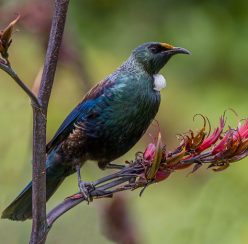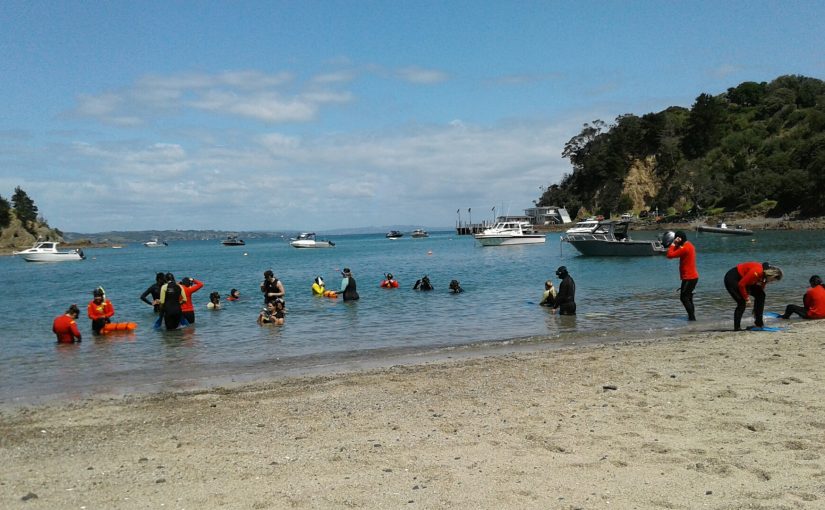A citizen science project funded by the Waiheke Local Board.
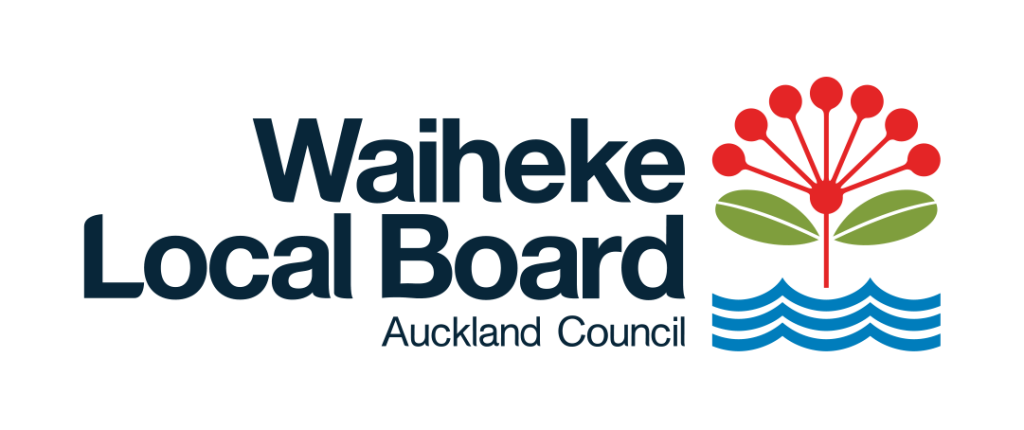
On Labour Weekend of 2022 Experiencing Marine Reserves held a workshop on Rakino Island, the purpose being to train the snorkeling participants on timed swim methodology in order to collect rocky reef species abundance and diversity data, to better understand the state of Rakino’s rocky reefs. Ten Rakino-ites attended, and EMR also brought ten of their volunteers over for training.
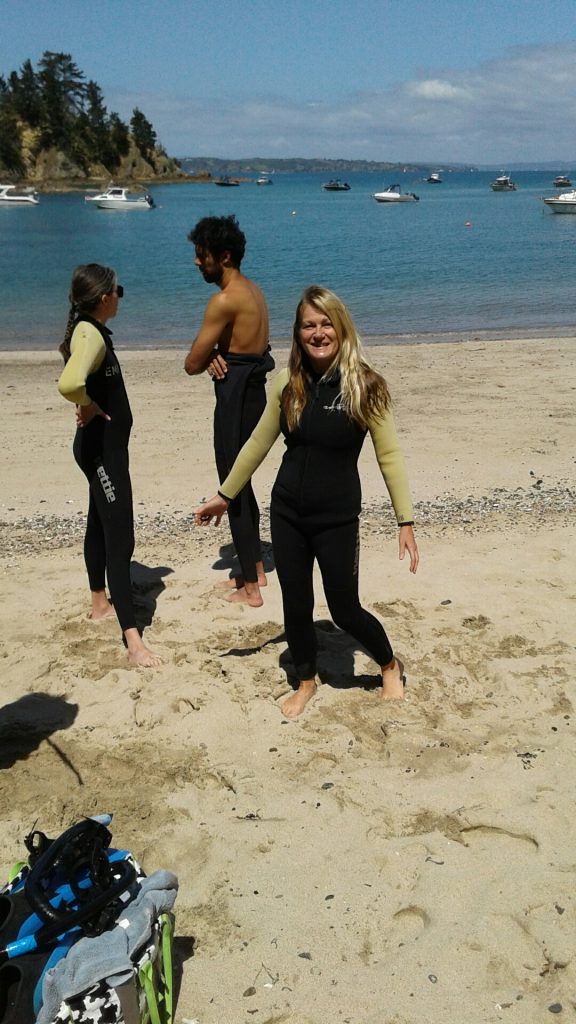
The funding for this was provided by the Waiheke Local Board, and Waiheke Resources Trust generously umbrella-ed our grant application for free, in the interests of encouraging an ongoing relationship with the Rakino community. https://wrt.org.nz/
We’re very grateful for this. We were also able to purchase an underwater camera and some dive slates with the funding.
We spent the morning in the Hall learning to identify the rocky reef dwelling species we were likely to see around the Rakino coastline, and schooling up on health and safety. Both of these things are harder than they sound!
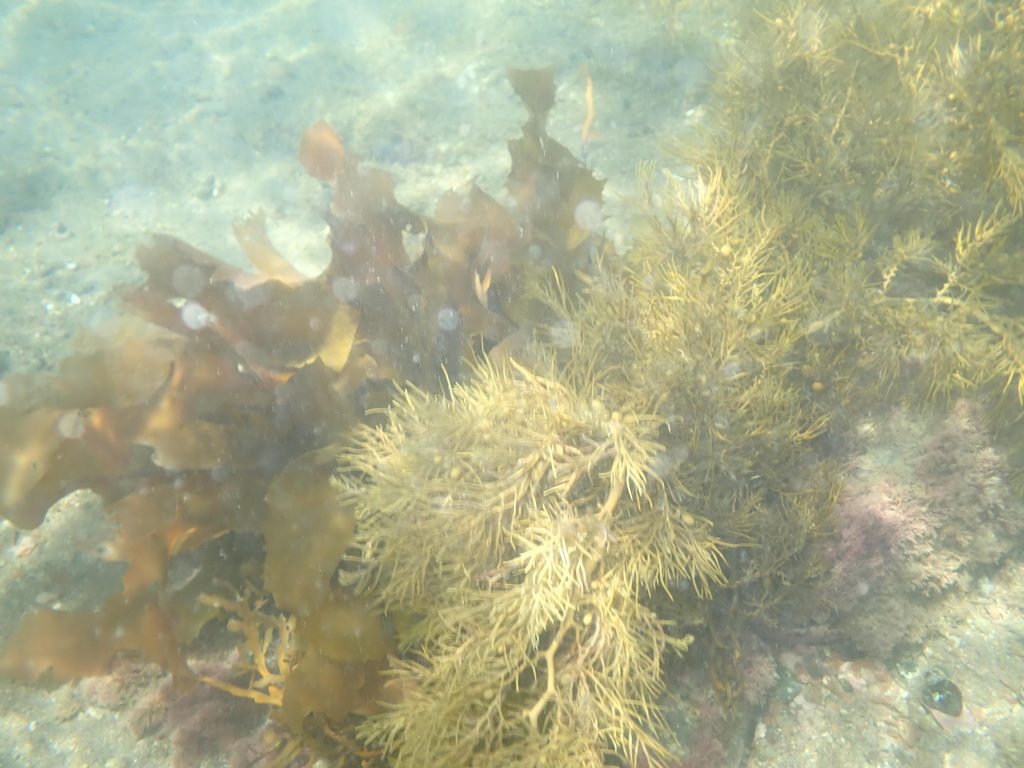
After a shared lunch the intrepid snorkelers donned their wet-suits and headed for the Sandy bay transects EMR trainer Sophie had plotted out earlier. One group headed around the rocks in the direction of Maori Garden Bay, and the other headed out towards the variously named island in Sandy Bay. I stayed on the beach with the weighty responsibility of counting snorkelers in and out of the water, and generally keeping an watchful eye.
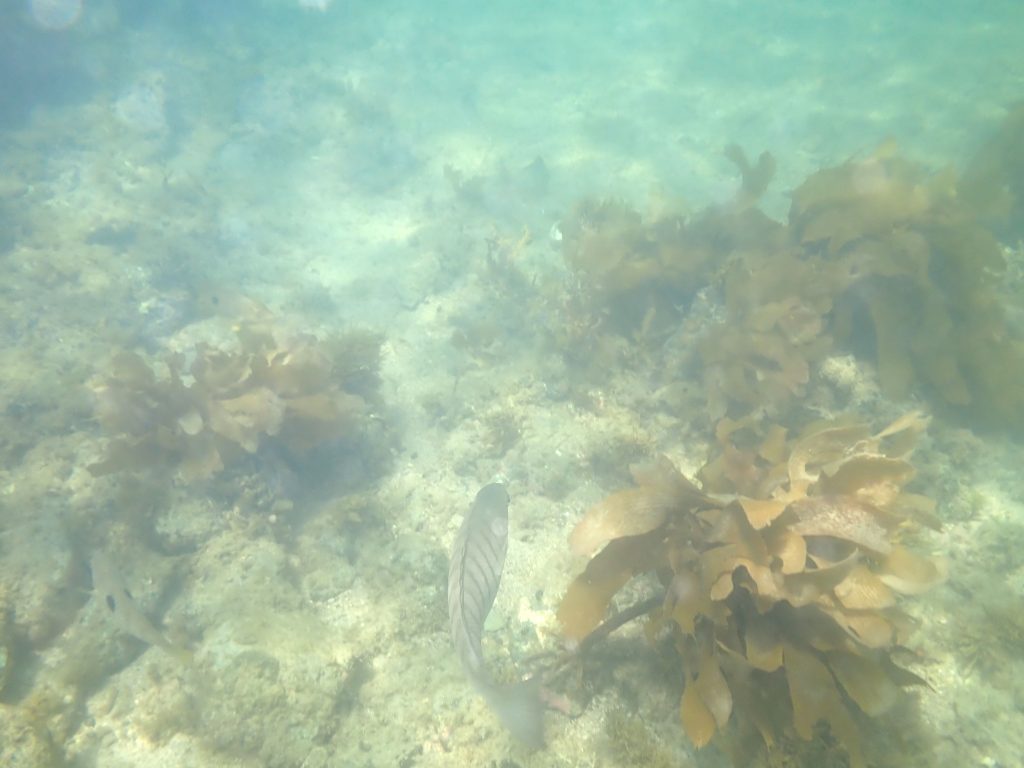
It was a chilly October day and a couple of snorkelers sensibly heeded the health and safety instructions and headed back to relative comfort of shore when they felt out of their depth. The team that headed in the direction of MGB had a more successful snorkel so we have abandoned the transect around the back of the Sandy Bay island in favour of a couple of less challenging yet more fruitful transects.
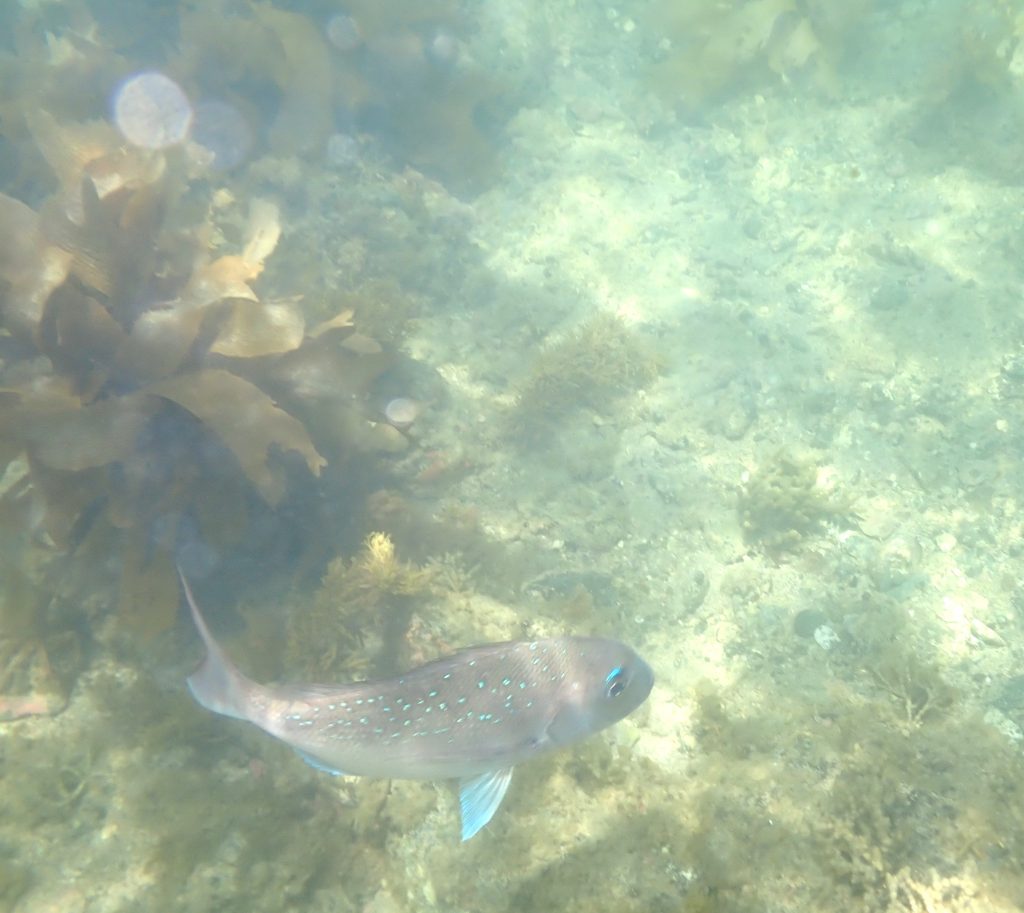
Simon has since constructed a species identifying chart, and a form for participating snorkelers to record their fish counts on. https://www.rakino.org.nz/fish-count/
The hope is that over time we’ll accrue enough data that it can be mapped to show trends. Unfortunately this year didn’t start brilliantly weather-wise, so it’s not been easy to coordinate snorkelers, but we have a chat group established on FB messenger, and we may get one more fish count in before winter, at which point we’ll resume again in November. We’ve tried to get one fish count in per month. It requires ongoing practice to get the methodology right, and hopefully next season the weather will be calmer and the water less turbid.
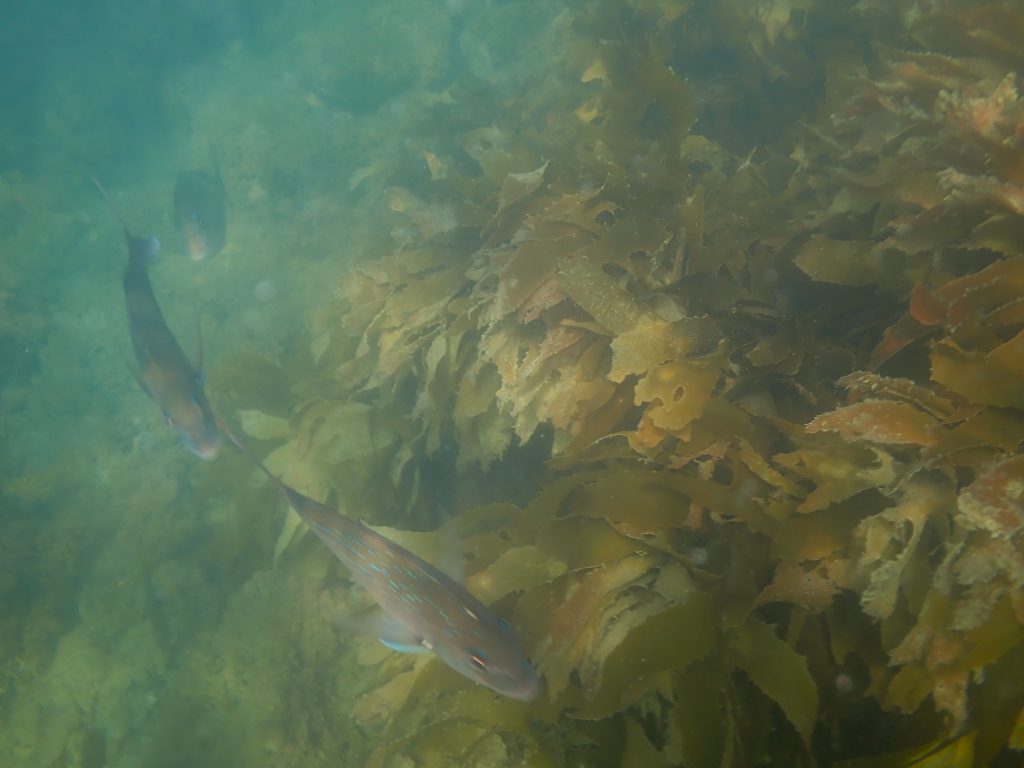
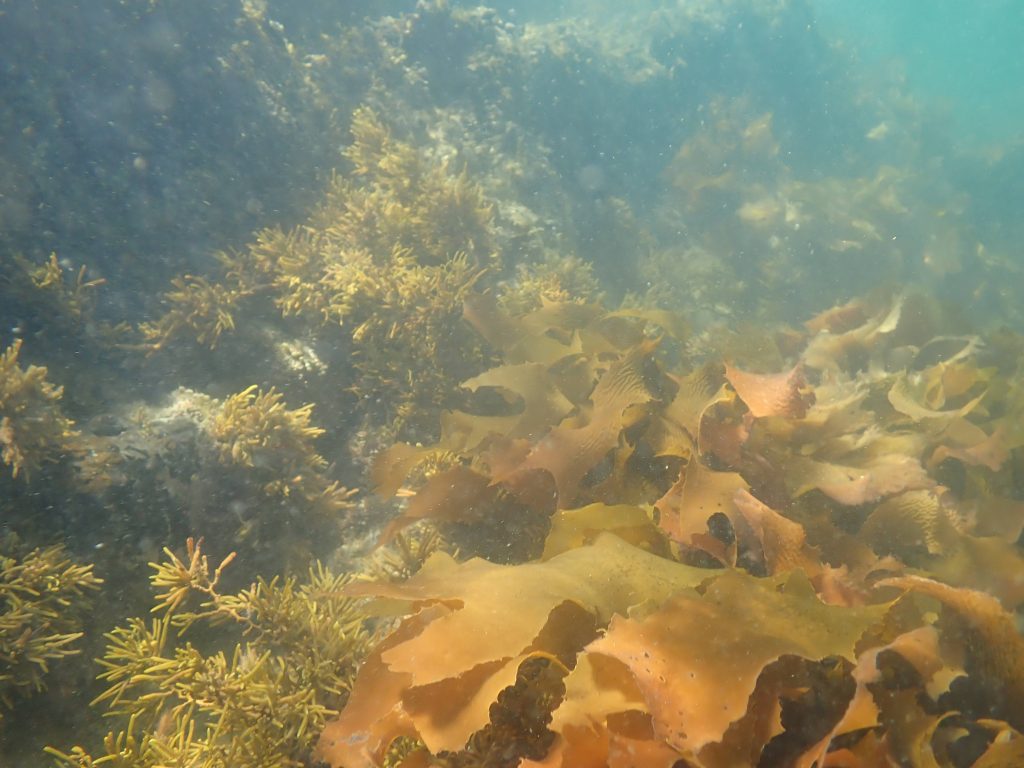
I’ve also since learned to snorkel and identify the commonplace fish species so I can participate too, though I’m still learning how to wrangle the underwater camera!
The project is intended to be ongoing, and driven by volunteers. If anyone who couldn’t attend the workshop is keen to participate in future please let us know.
